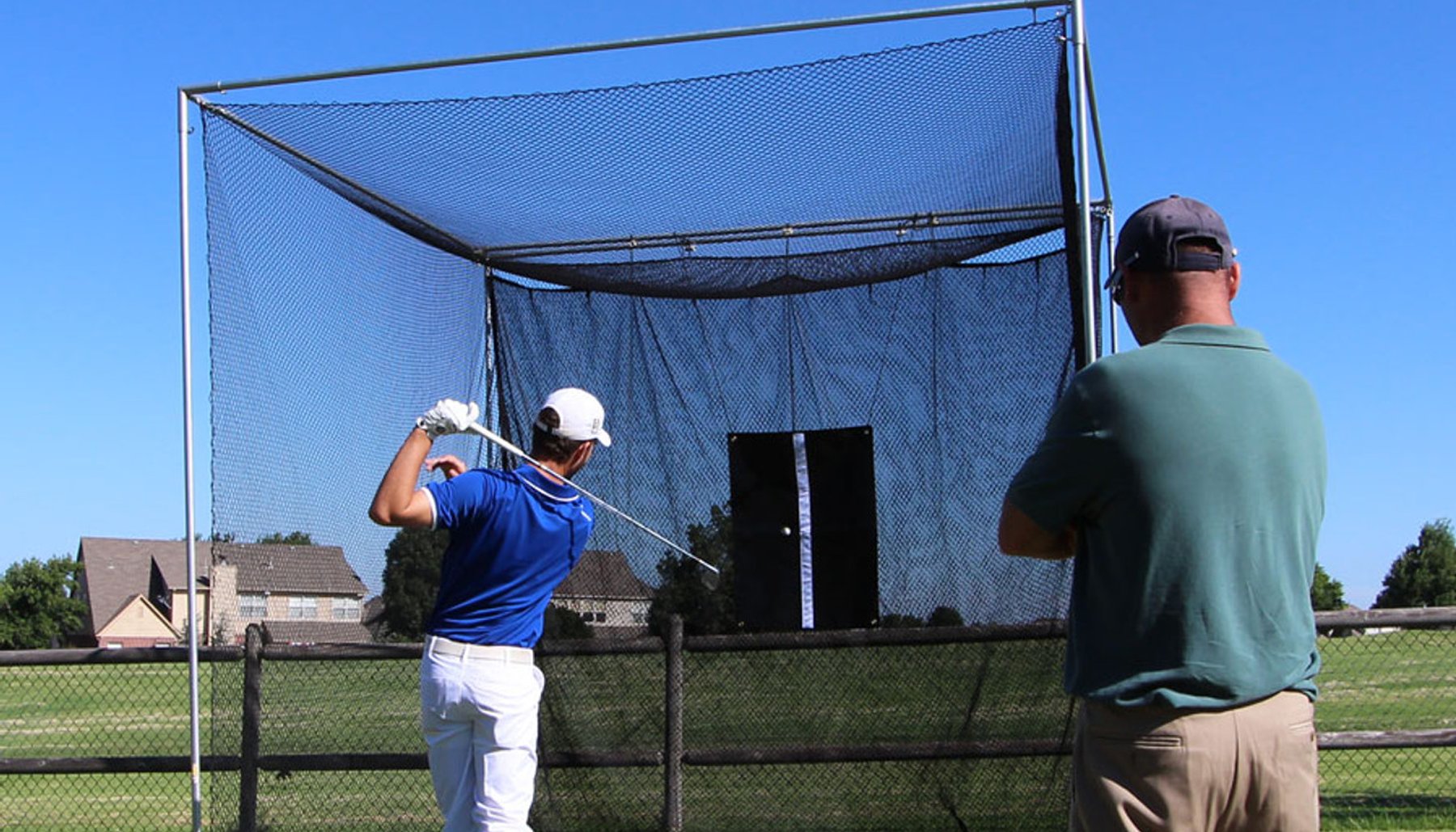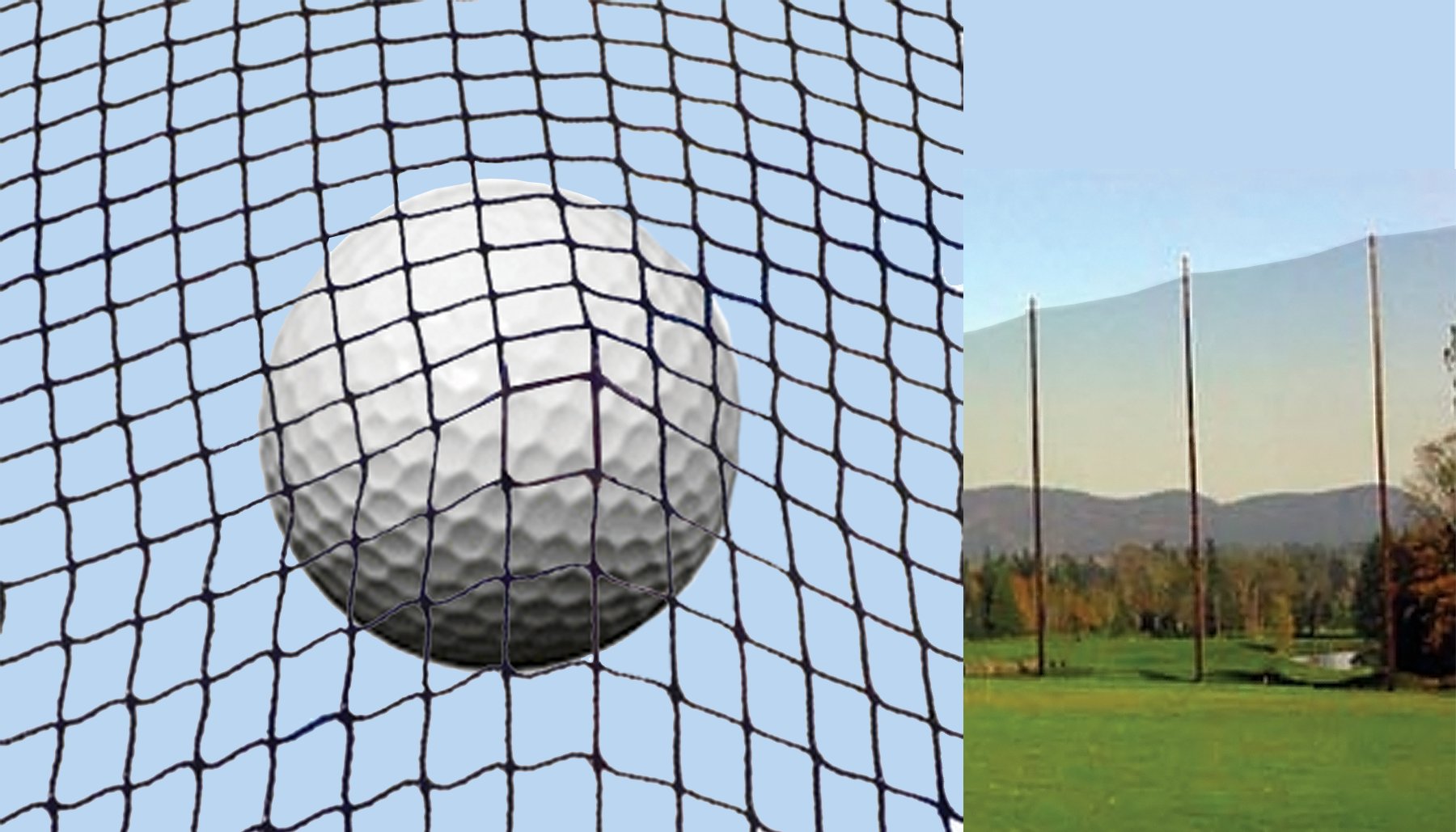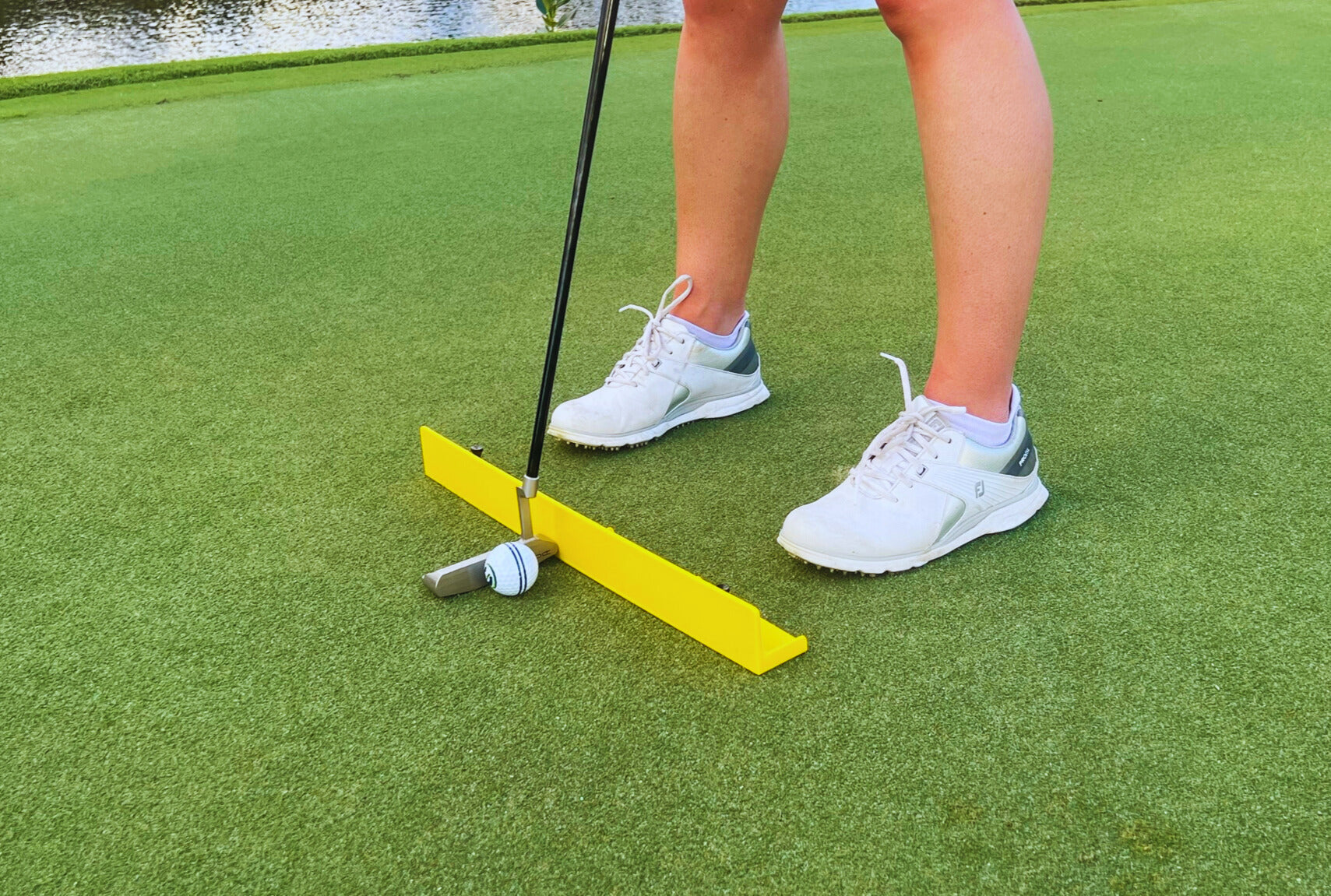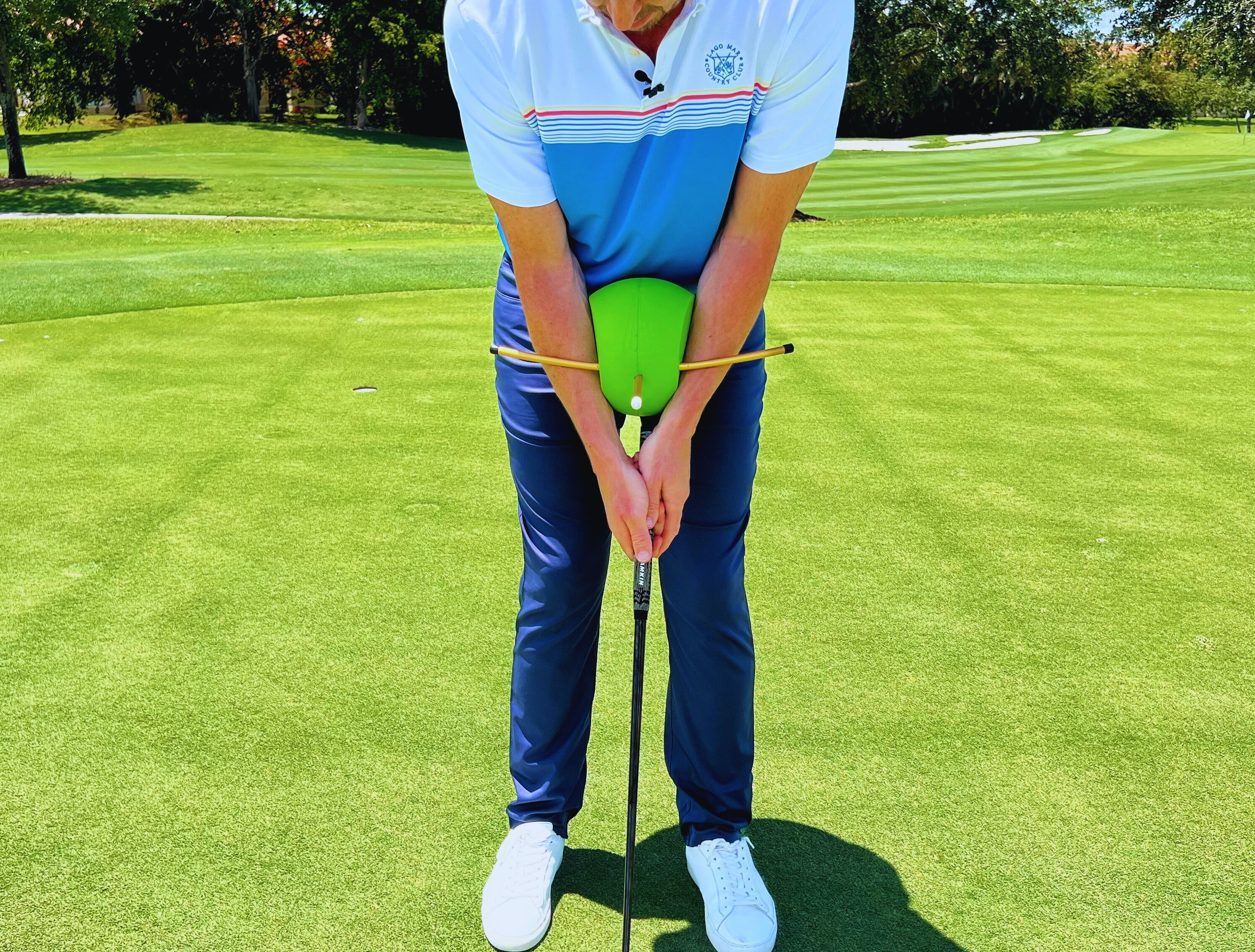The Most Common Mistakes Golfers Struggle With
Golf is a challenging game, and even experienced players can struggle with certain aspects of their game. Whether you're a beginner or a seasoned golfer, understanding the most common mistakes can help you avoid them and improve your performance. Here are the most frequent mistakes golfers make, along with tips for overcoming them:
VISIT OUR TRAINING AIDS SECTION TO START IMPROVING!
- Poor Grip
- Mistake: A bad grip is one of the most common mistakes golfers make. Holding the club too tightly or incorrectly can cause tension, restrict your swing, and lead to inconsistent shots.
- Fix: Ensure your grip is firm but relaxed. For most golfers, a neutral grip is best. Your left hand (for right-handed players) should have the "V" formed by the thumb and index finger pointing toward your right shoulder, and your right hand should wrap around the grip in a comfortable but secure manner.
- Incorrect Alignment
- Mistake: Misalignment is a frequent issue that leads to poor shots. Golfers often aim left or right of their target without realizing it, which causes the ball to veer off course.
- Fix: Before every shot, make sure your feet, hips, and shoulders are aligned parallel to your target line. You can use alignment sticks or even a club placed on the ground to ensure your body is lined up correctly.
- Swaying or Sliding
- Mistake: Many golfers sway or slide their body during the backswing or follow-through, which affects the consistency of their shots. Swaying moves the center of gravity, making it difficult to make solid contact with the ball.
- Fix: Focus on a stable base during your swing. Instead of swaying, think about turning your hips and shoulders while keeping your lower body still. Work on maintaining a centered swing motion, with minimal lateral movement.
- Over-Swinging or Trying to Hit Too Hard
- Mistake: Trying to hit the ball too hard or swinging with excessive force can lead to inconsistent strikes and loss of control. Golf is about precision, not power, and over-swinging can lead to a loss of accuracy.
- Fix: Focus on smooth, controlled swings. Instead of trying to crush the ball, concentrate on maintaining good mechanics and making solid contact. Consistency is more important than raw power, especially with irons and wedges.
- Poor Tempo and Rhythm
- Mistake: Many golfers either rush their swing or take too long, disrupting the natural flow and rhythm. An erratic tempo can result in poor timing and inconsistent contact.
- Fix: Work on finding a consistent tempo that feels comfortable for you. Try to swing with a steady rhythm, neither rushing the backswing nor hesitating at the top. A good drill is to count in your head as you swing (e.g., “1-2-3”) to help maintain a smooth, even pace.
- Not Enough Follow-Through
- Mistake: Some golfers tend to cut off their follow-through, which leads to poor ball contact and weak shots. A short follow-through can also affect the accuracy and distance of the shot.
- Fix: Focus on completing your swing and following through properly. Your chest should face the target, and your body should rotate fully toward the hole after making contact with the ball. A complete follow-through ensures more power and better control.
- Poor Short Game (Chipping and Putting)
- Mistake: Many golfers struggle with their short game, especially chipping and putting. Poor chipping leads to missed greens, and putting errors can ruin your score by leaving you with multiple putts.
- Fix: Spend more time practicing your chipping and putting. For chips, focus on using the right club and keeping a controlled, simple motion. For putting, concentrate on reading greens, controlling your pace, and keeping your putting stroke smooth and consistent. Short-game practice can often make the biggest difference in your score.
- Failure to Adjust for Course Conditions
- Mistake: Some golfers don't adjust their strategy based on course conditions, such as wind, rain, or the firmness of the greens. Playing the same way regardless of conditions can lead to poor performance.
- Fix: Be mindful of weather conditions and adjust your game accordingly. For example, in the wind, you may need to use more club or lower your trajectory to prevent the ball from being blown off course. When greens are firm, focus on landing the ball short of the pin to allow it to roll toward the target.
- Lack of Course Management
- Mistake: Trying to hit every shot as hard as possible or attempting risky shots that aren’t necessary is a common mistake, especially among beginners. Poor course management can result in unnecessary hazards, penalties, and higher scores.
- Fix: Learn how to play smart golf. Assess the course layout and plan your shots to avoid trouble. Take club selections that keep you in play and focus on hitting fairways and greens instead of going for hero shots. When in doubt, play conservatively and avoid unnecessary risks.
- Not Practicing Enough
- Mistake: A common mistake for golfers of all levels is not spending enough time practicing. It’s easy to assume that you’ll improve by just playing rounds, but consistent practice is essential for developing good habits and improving weaknesses.
- Fix: Set aside regular time for focused practice. Work on all aspects of your game, not just your long drives. Spend time on your putting, chipping, and irons. Practicing regularly, even if it’s just 30 minutes a few times a week, can help you develop more consistent skills and lower your scores.
- Inconsistent Pre-Shot Routine
- Mistake: Golfers often fail to establish a consistent pre-shot routine, which can lead to anxiety, poor decision-making, and inconsistent performance.
- Fix: Develop a routine that you follow before every shot, no matter what. This can include steps like visualizing the shot, aligning your club, and taking a few deep breaths. A consistent pre-shot routine can help you stay calm and focused, leading to better performance.
- Overlooking Mental Game
- Mistake: Many golfers focus on technique but overlook the mental aspect of the game. Stress, frustration, and negative thinking can have a huge impact on performance.
- Fix: Work on staying mentally focused and maintaining a positive attitude. Learn to control your emotions, stay in the present moment, and recover quickly from mistakes. Golf is a mental game as much as a physical one, and staying calm can help you make better decisions and execute your shots more effectively.
Conclusion
DON'T FORGET TO VISIT OUR TRAINING AIDS SECTION!
Golf is a game of precision, patience, and practice. By avoiding these common mistakes and working to correct them, you’ll become a more consistent and effective player. Whether it’s fixing your grip, improving your short game, or learning better course management, small adjustments can lead to big improvements in your game. Keep practicing and stay patient—it takes time to master the fundamentals!
















